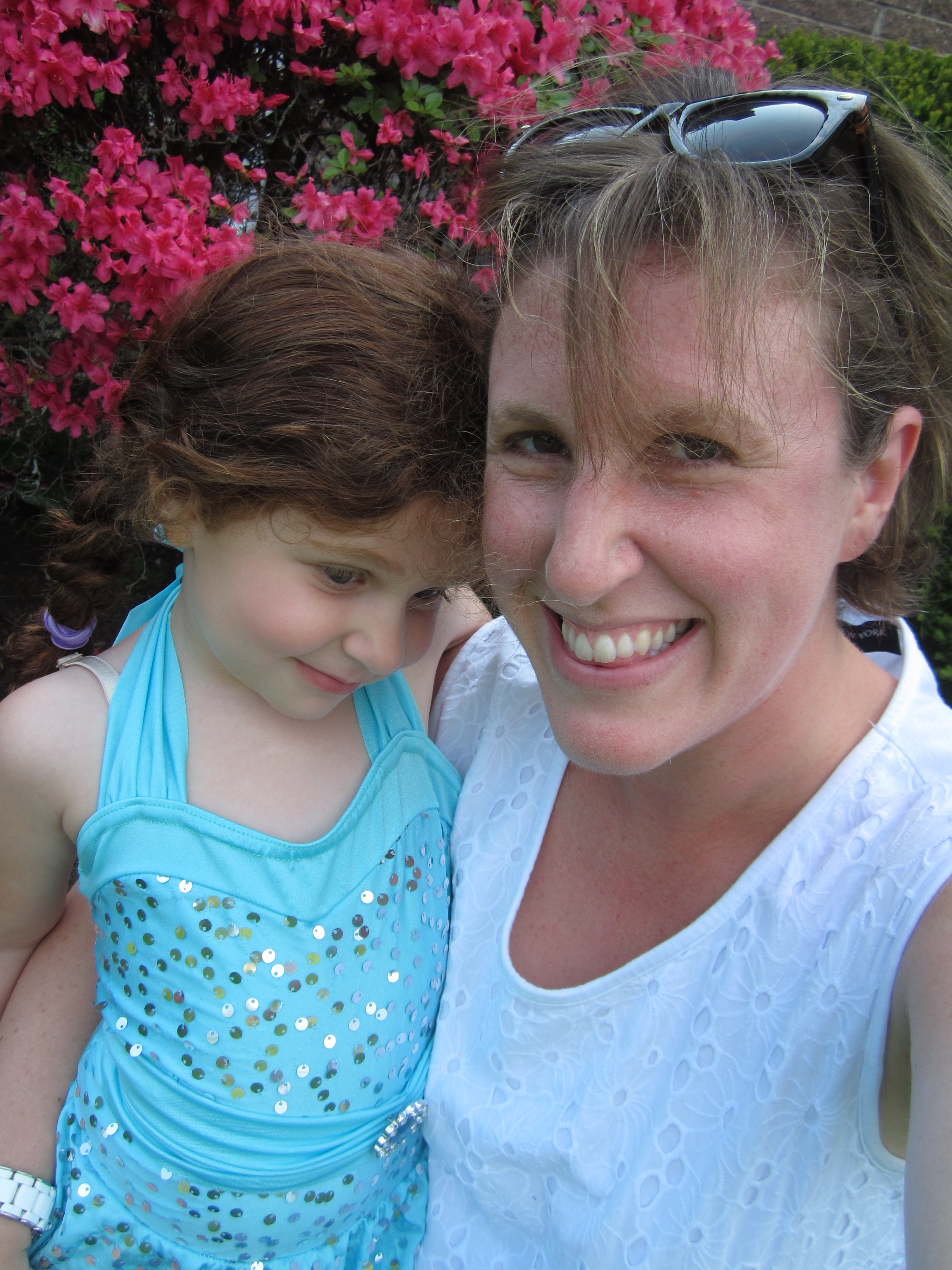The other night I was sweeping the kitchen floor, carefully pushing piles of dirt and Pringles and Play-Doh around Ruby, who was naturally playing on the dirtiest part of the floor directly under my feet, when I suddenly stopped and looked at her. And I caught her watching me, studying me. I felt anxious, wondering if the image I was creating in her mind was somehow a glimpse of what her own future might look like. I think what she sees in the most simplistic terms is a woman serving her family, by sweeping and cooking and washing and doing all of these very sort of old school, traditional, woman-ly things. And that I do more of them and Phil does less of them is just more of a function of who is here more to do them and where our family is at right now.
There are many things about this that trouble me. I feel anxious that she thinks we've prioritized Phil's work over mine, even though Phil and I made a conscious choice to divide up the labor this way both for financial reasons and because I wanted to be home with Ruby. I'm concerned that she thinks that because our family operates this way, most families are structured similarly, which more than ever, just isn't true. I'm worried that whether she can verbalize it or not, she's making a mental note to structure her own family this way someday. I'm worried about what she didn't see -- college, a graduate degree, hard work, promotions, leadership, long hours and business suits and high heels and me running meetings and writing budgets and creating pieces of work that I'm proud of. I'm worried that she can't see the paycheck that used to come in. I'm worried that when I try to re-enter that world and show that side to her, I will be too far out from it to ever reclaim what I was to it. It's a valid concern. I have no idea -- or worse, a good idea -- of what the professional and financial implications of my ultimate exit and attempted re-entry will be in the workforce. I chose it. I have to accept the consequences.
Even worse, I'm worried she thinks that being a mother or a parent who chooses to stay at home is as one-dimensional and simplistic and unfulfilling as sweeping a dirty floor. That she doesn't see the elaborate decision-making process that went into this choice. That she isn't catching that light in my eyes in those totally innocuous yet amazing moments that remind me why I'm there in the first place.
And the thing is, it's a lot of pressure just trying to sweep the floor while feeling the full weight of your daughter's expectations for her future self as woman and professional and wife and mother boring down on you through her big, blue, questioning eyes. And rightly so. Maybe I'm just sweeping the floor and she's not thinking any of this. Maybe she's only thinking, Shit, we haven't eaten Pringles since last week. That bitch really needs to sweep the floor more often.
Maybe. I'll allow that.
And all of this got me thinking on blickets. I first read about blickets in a recent New York Times article which outlined a fascinating study conducted by a bunch of UC Berkeley researchers. In it, they put a bunch of lumps of clay on the table in front of a group of children with no further information than, "... you cannot tell which ones are blickets by looking at them. But the ones that are blickets have blicketness inside." After performing the study both with children and adults, one of many conclusions was that in general, children seem to perform better at the exercise than grown-ups because the adults, based on previous biases, were most likely to use the "or" stance to frame their blicket conclusions (it must be this or this, but not this) whereas the children were far more likely to use the "and" stance in their assumptions. The author writes that the children "... quickly ditched the 'or' rule and hit upon the far less likely 'and' rule. Such low-probability hypotheses often fail. But children ....will try these wild ideas anyway, because even if they fail, they produce interesting results."
And as I stared at Ruby and started thinking about blickets and dirty floors and graduate degrees and lost opportunities and found opportunities and sweeping and leaning and leading and all of the general complicatedness that is eagerly awaiting her and other young girls, I had but one wish: That she never lets go of her "and" stance. That as old as she gets, regardless of what she chooses and how ridiculous it sounds or seems, she still has a playful little girl at her complicated confused mother's feet who still believes it's all possible. I know I do. Much like the blickets, I don't know what shape or form those opportunities and paths will come in. But I know as long as we both stay open to the possibilities, as long as we continue to celebrate the fact that women are inheriting a world of possibility, then at least it will be interesting.
